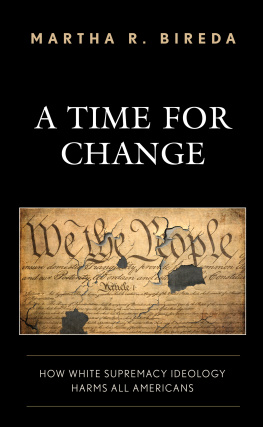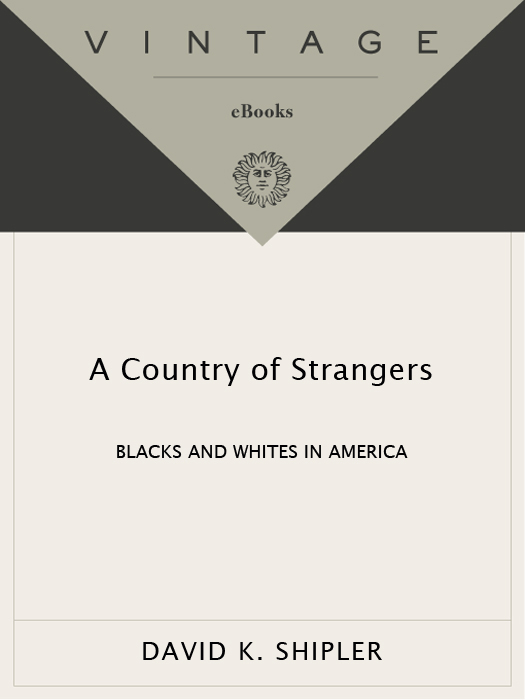Shipler - A country of strangers : blacks and whites in America
Here you can read online Shipler - A country of strangers : blacks and whites in America full text of the book (entire story) in english for free. Download pdf and epub, get meaning, cover and reviews about this ebook. City: New York, United States, United States, year: 1997, publisher: Knopf Doubleday Publishing Group, genre: Politics. Description of the work, (preface) as well as reviews are available. Best literature library LitArk.com created for fans of good reading and offers a wide selection of genres:
Romance novel
Science fiction
Adventure
Detective
Science
History
Home and family
Prose
Art
Politics
Computer
Non-fiction
Religion
Business
Children
Humor
Choose a favorite category and find really read worthwhile books. Enjoy immersion in the world of imagination, feel the emotions of the characters or learn something new for yourself, make an fascinating discovery.

A country of strangers : blacks and whites in America: summary, description and annotation
We offer to read an annotation, description, summary or preface (depends on what the author of the book "A country of strangers : blacks and whites in America" wrote himself). If you haven't found the necessary information about the book — write in the comments, we will try to find it.
We learn how blacks and whites see each other, how they interpret each others behavior, and how certain damaging images and assumptions seep into the actions of even the most unbiased. We penetrate into dimensions of stereotyping and discrimination that are usually invisible, and discover the unseen prejudices and privileges of white Americans, and what black Americans make of them.
We explore the competing impulses of integration and separation: the reference points by which the races navigate as they venture out and then withdraw; the biculturalism that many blacks perfect as they move back and forth between the white and black worlds, and the homesickness some blacks feel for the comfort of all-black separateness. There are portrayals of interracial families and their multiracial children--expert guides through the clashes created by racial blending in America. We see how whites and blacks each carry the burden of our history.
Black-white stereotypes are dissected: the physical bodies that we see, the mental qualities we imagine, the moral character we attribute to others and to ourselves, the violence we fear, the power we seek or are loath to relinquish.
The book makes clear that we have the ability to shape our racial landscape--to reconstruct, even if not perfectly, the texture of our relationships. There is an assessment of the complexity confronting blacks and whites alike as they struggle to recognize and define the racial motivations that may or may not be present in a thought, a word, a deed. The book does not prescribe, but it documents the silences that prevail, the listening that doesnt happen, the conversations that dont take place. It looks at relations between minorities, including blacks and Jews, and blacks and Koreans. It explores the human dimensions of affirmative action, the intricate contacts and misunderstandings across racial lines among coworkers and neighbors. It is unstinting in its criticism of our societys failure to come to grips with bigotry; but it is also, happily, crowded with black people and white people who struggle in their daily lives to do just that.
A remarkable book that will stimulate each of us to reexamine and better understand our own deepest attitudes in regard to race in America
Shipler: author's other books
Who wrote A country of strangers : blacks and whites in America? Find out the surname, the name of the author of the book and a list of all author's works by series.






